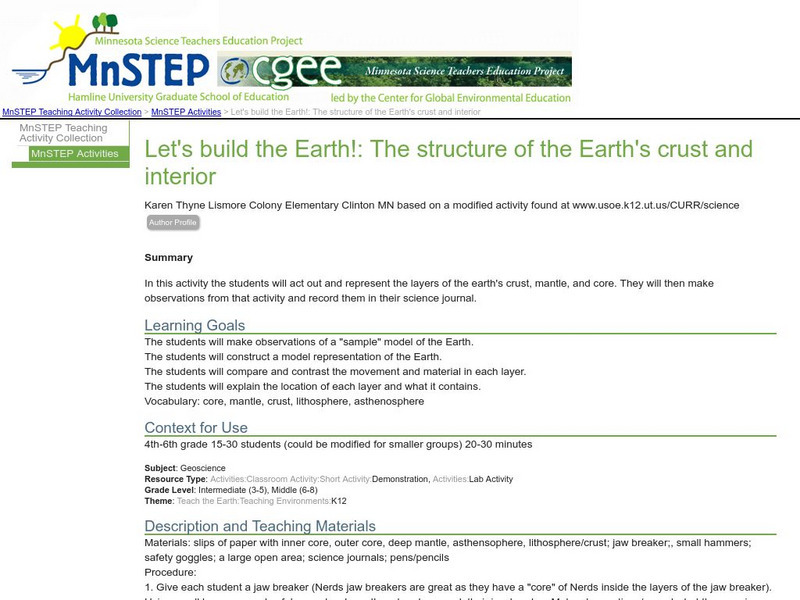Hi, what do you want to do?
PBS
Pbs Learning Media: Seasons on Earth and Mars
Compare the seasons on Earth and Mars with NASA imagery. Use this resource to visualize how the axial tilt of a planet influences its seasons and to compare data about seasonal changes on Earth and Mars. Support materials include:...
Science Education Resource Center at Carleton College
Serc: Let's Build the Earth!: The Structure of the Earth's Crust and Interior
For this activity, learners will make observations then construct a "sample" model representation of the Earth's layers. They will compare and contrast the movement and material in each layer explaining the location and what it contains.
Harvard University
Harvard Smithsonian: Everyday Classroom Tools
The focus of this series of lessons is to engage students in an exploration of the world around them. The emphasis is on inquiry as students learn about the earth, sun, light, shapes and more.
Discovery Education
Discovery Education: Path to Mars
Students use websites and other resource materials to compare and contrast features of Mars and Earth.
TeachEngineering
Teach Engineering: Building a Barometer
Students investigate the weather from a systems approach, learning how individual parts of a system work together to create a final product. Students learn how a barometer works to measure the Earth's air pressure by building a model out...









